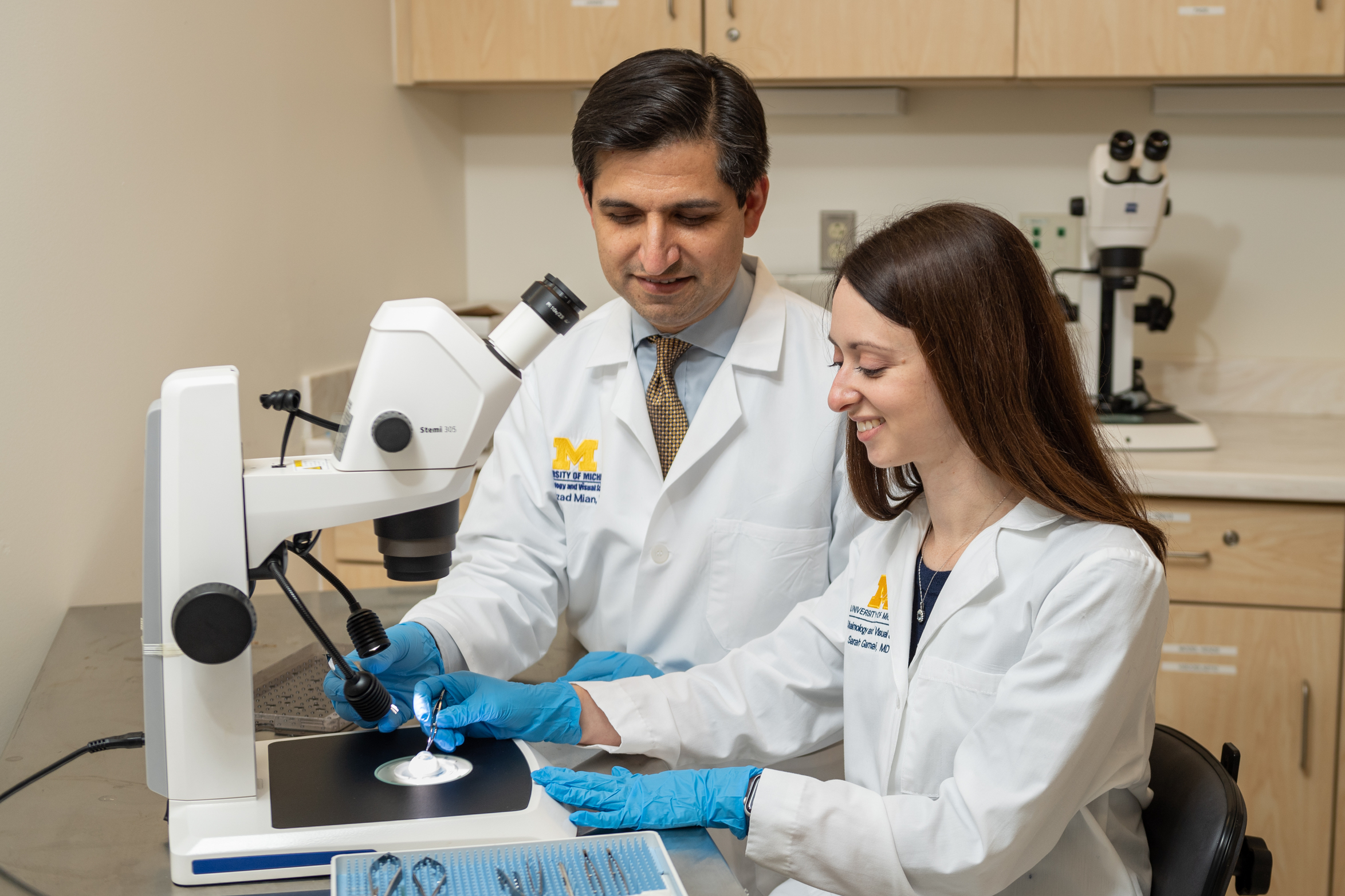
3 minute read
AUPO SCOR Program
Pictured above: Shahzad Mian, M.D., with second-year resident, Sarah Garnai, M.D.
All ophthalmology residents must fulfill the competencies outlined by The Accreditation Council for Graduate Medical Education (ACGME). With the many advances in eye surgery, providing greater opportunities for residents from around the country to enhance their skills has been challenging.
A program to provide broader participation developed by the Program Directors Council (PDC) of the Association of University Professors of Ophthalmology (AUPO) was approved in 2018. Representatives from top academic ophthalmology programs across the U.S. began developing the AUPO Surgical Curriculum for Ophthalmology Residents (SCOR) program, which launched in 2021.
Shahzad Mian, M.D., past Program Director of the Kellogg residency and past Chair of the PDC was selected to direct the initiative. A corneal transplant surgeon and educator, Dr. Mian also serves as Vice Chair of Clinical Sciences and Learning at Kellogg.
AUPO/SCOR is a standardized system to train and assess the competency of residents in all disciplines of ophthalmology on a broad range of basic and advanced surgical skills. “The program is aimed at residents in their fourth year of postgraduate training (PGY4s),” explains Dr. Mian. “Traditionally, the first three years focus on clinical patient evaluation and medical management. Once those skills are mastered, the focus shifts to surgical skills in year four.”
The 2021 rollout began with the launch of the online platform and the first two in-person skills transfer workshops, attended by a total of 144 residents. Another 72 residents attended a third workshop held at the 2022 American Academy of Ophthalmology meeting.
“We are pleased with how the program is scaling,” says Dr. Mian. “To date we’ve trained 228 residents representing more than 80 programs, with help from 100-plus faculty members from more than 40 programs.” The plan is to double the capacity for in-person training in 2023.
“About 500 ophthalmology residents graduate each year in the U.S.,” Dr. Mian adds. “We’re making good progress toward our goal of giving them all the opportunity to participate.”
The curriculum is comprised of four components:
• On their own, students access an online learning platform for foundational medical knowledge.
• Students attend a one-day in-person skills transfer workshop to receive one-on-one training in approximately 25 surgical procedures.
• Assessment tools built into the workshop allow instructors to gauge how well residents are mastering the skills.
• Finally, train-the-trainer tools build the skills of both workshop instructors and residency program faculty at academic institutions.










